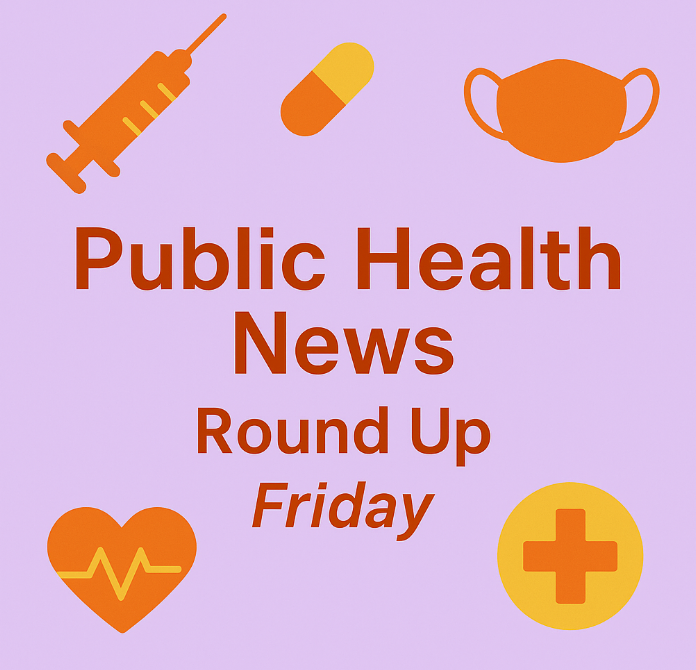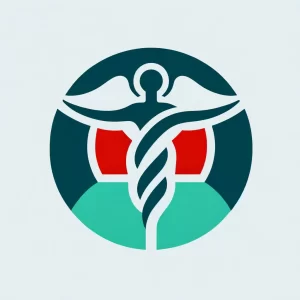
Public Health News Update, May 26, 2025
Happy Memorial Day to our U.S. colleagues. It’s kind of hard to be the right* amount of patriotic these days. Stay strong out there peeps.
Be a Changemaker—Support Independent Public Health!
Stay informed with the latest developments and actionable strategies. Your free subscription directly supports our self-funded mission to deliver crucial updates weekly. 💡 Every moment counts! Share now and invite others to amplify this important message!
5 ways Trump’s tax and spending bill would change Medicaid in Oregon
The new bill passed by the House proposes significant changes to Medicaid, like introducing work requirements for certain adults and restricting federal Medicaid funding for services like gender-affirming care, causing concerns about increased uninsured rates and access to crucial healthcare services in Oregon. Moreover, the proposed legislation’s impact on funding might leave the state juggling major financial and coverage dilemmas, especially affecting support for immigrants and low-income residents.
A physician who advocates for the power of human touch over technology will deliver Harvard’s commencement speech
Abraham Verghese, the renowned physician, author, and professor, is set to deliver an impactful commencement speech at Harvard University, underscoring the crucial importance of the physician-patient connection during times of institutional uncertainty. With his extensive background in medicine and literature, Verghese advocates for the healing power of bedside manners and personal interaction, aiming to educate future medical professionals to balance technological advancements with genuine human connection and empathetic care.
Diseases Are Spreading. The CDC Isn’t Warning the Public Like It Was Months Ago
The Trump administration’s takeover of the CDC’s communication platforms has led to significant setbacks in the dispersion of critical health information, leaving many public health workers feeling hamstrung and raising concerns about the potential risks to public health during ongoing disease outbreaks. The centralization of control under the Department of Health and Human Services has not only delayed essential updates on public health threats like measles and listeria but also shifted the focus from science-based messaging to content more politically driven, potentially endangering lives by halting timely and lifesaving guidance.
Feds chop enforcement staff and halt rules meant to curb black lung in coal miners
In a bittersweet move, while the Trump administration promised to boost coal production by supporting miners, it simultaneously paused essential safety regulations aimed at protecting them from deadly black lung disease, leaving coal workers vulnerable due to funding cuts and halted health surveillance programs. This underscores a stark contradiction between economic development rhetoric and the actual safeguarding of miners’ lives, emphasizing the need for balanced policy approaches that genuinely prioritize worker health and safety.
Loneliness Rises
In this special edition of Meet the Press, experts discuss the alarming rise in loneliness and mental health struggles among American youth, exacerbated by social media and lack of meaningful human connections. Solutions proposed include forming supportive communities, implementing stricter social media regulations, and encouraging real-life interactions to foster happiness and resilience. Dr. Vivek Murthy highlights loneliness as a public health emergency, comparing its health impacts to smoking, while former Congressman Patrick Kennedy calls for structural changes in mental health policy and social media regulation to protect youth.
Mike Johnson Insists It’s ‘Moral’ to Throw People Off Medicaid
The House has passed a controversial bill advocating for Medicaid work requirements, which Speaker Mike Johnson argues builds “dignity” among recipients but could lead to large Medicaid coverage losses, especially hitting nearly 200,000 in Louisiana alone. Critics, including some Republicans in the Senate, warn of dire repercussions such as millions losing coverage due to cuts and bureaucratic hurdles, potential hospital closures from funding reductions, and strained services, while the bill also offers massive tax breaks for the wealthiest.
Parts of Colorado face measles risk as high as West Texas due to low vaccination rates
In Colorado, low vaccination rates, particularly in rural areas and individual schools, coupled with declining national trends and misinformation, have created ripe conditions for a measles resurgence—mirroring troubling patterns seen in places like West Texas. Despite efforts to boost vaccine uptake, socioeconomic barriers, vaccine hesitancy, and federal funding cuts pose significant challenges, increasing the risk of measles becoming a permanent threat if not addressed promptly.



